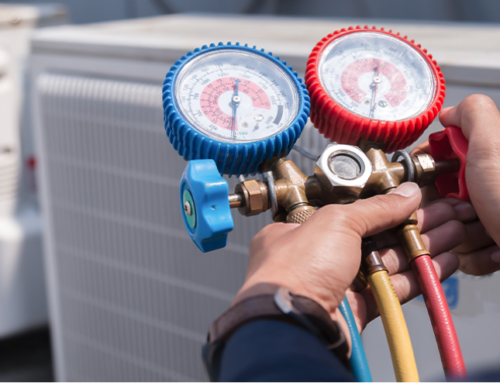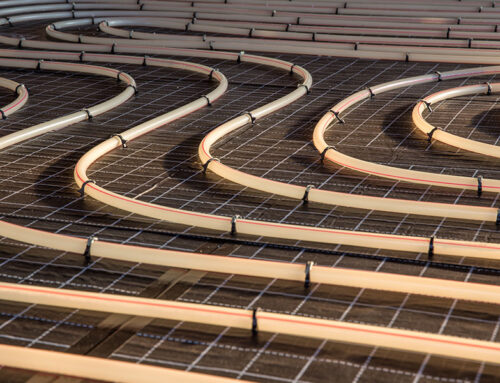A proper heating system is vital for buildings in the cool, mountainous Colorado climate. Whether you heat your building with baseboard heaters or ductwork and air handlers, you need a system you can count on. This post discusses the different types of hydronic heating systems that Legacy Mechanical offers and the benefits they offer.
Types of Hydronic Heating Systems
We offer four main types of hydronic systems:
- Baseboard Heating: A hot water pipe is surrounded by metal fins that radiate the air and help distribute the heat into the room above the baseboard. Heat rises naturally, and a hydronic baseboard heater is built to take advantage of that quality.
- Hydronic Air Handlers: This system uses ductwork to distribute heat. First, it pumps hot water into a heat exchanger next to the air handler. Then the air handler distributes hot air into the ducts, which distribute the heat throughout the building.
- Hydronic Boilers: Boilers are most often fueled by natural gas, propane, or fuel oil, but alternative fuel sources include heat pumps (which work as two-way air conditioners) and solar thermal systems. Hydronic boilers work to pump hot water to radiators that release the heat into a building’s rooms.
- Commercial Electric Water Heaters: This heating system uses electricity to fuel the water heater instead of gas or propane. The Department of Energy provides energy-efficiency guidelines for installing a commercial electric water heater, which you should consult before your business installs one.
These systems all generally include pumps to the move the water into the piping that sends the hot water out into the building.
Benefits of Hydronic Heating Systems
Hydronic heating systems have multiple advantages over forced air heating and cooling systems. They include:
- Comfort: Using a hydronic system to heat your building does not dry out indoor air the way a forced air system does. It also heats your building without pushing dust and allergens around the building, which can improve air quality. Finally, hydronic systems are much quieter than forced air systems. All of these features contribute to the comfort and good health of your colleagues and employees.
- Efficiency: Hydronic heating systems are considered energy efficient because many of them, such as baseboard heaters, are installed toward the bottom of the room or on the floor. Since heat naturally rises, that lower placement means that the heat can be distributed throughout the room. Forced air systems are often installed in higher locations within the building or room, which allows most of the heated air to escape.
- Versatility: The variety of hydronic heating options allows for many different kinds of designs and installations. Hydronic systems often aren’t visible in the working space, unlike some forced air systems, and one system can deploy multiple kinds of heating, including space heating and pool heating. Because of this, hydronic heating systems can fit with many different tastes and budget ranges.
Denver Hydronics Services
If you’re interested in purchasing a hydronic heating system from a Denver mechanical services company, give us a call today. We will work with you to design a commercial hydronics installation that will fit your needs and budget. We also can design a maintenance plan for your current hydronics system, if you have one, that accounts for its age, location, condition, and usage requirements. Legacy Mechanical, Inc. is here to take care of your hydronics needs.





